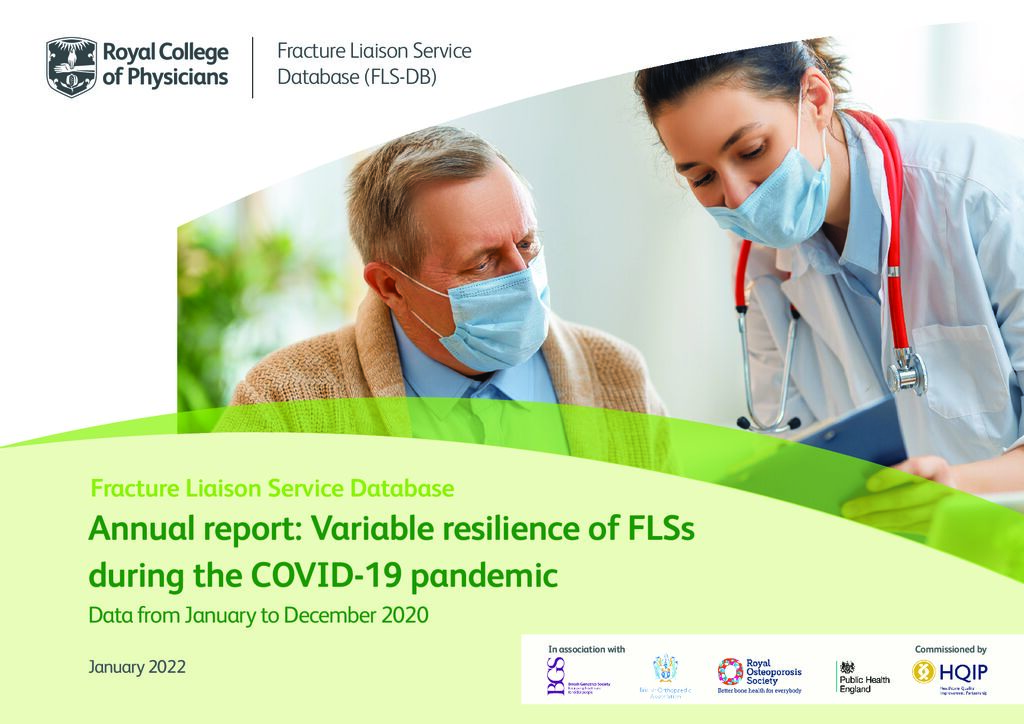Fracture Liaison Service Database Annual Report
The Fracture Liaison Service Database (FLS-DB) has published its latest annual report, Variable resilience of FLSs during the COVID-19 pandemic. Based on data from January to December 2020, the report presents the results of analysis on secondary fracture prevention care received by patients aged 50 and older in England and Wales.
62,207 patient records from 69 Fracture Liaison Services (FLSs) across England and Wales contributed to the report – though approximately 7,500 (10%) fewer patients were submitted in 2020, compared with 2019 with marked variation between services. The key findings also include:
- Only 24% of patients received a DXA scan within 90 days in 2020, compared with 46% in 2019.
- At least 90,000 patients in England and Wales who should have anti-osteoporosis therapy are not receiving it, and
- FLSs are using different types of radiological studies to identify potential vertebral fragility fractures, with cross-sectional imaging identifying higher rates of VFF than plain films.
The report also found that, due to the COVID-19 pandemic, there has been a decrease in achievement for most key performance indicators (KPIs). However, achievement in four out of 11 KPIs improved despite the pressures that services were under.
Read the full report: You can read the report by clicking on the link below.
Stay-up-to-date: For notifications of future reports from HQIP, sign up to our mailing list.


